News
Sri Lanka Rajapaksa clan presses for imperial presidency
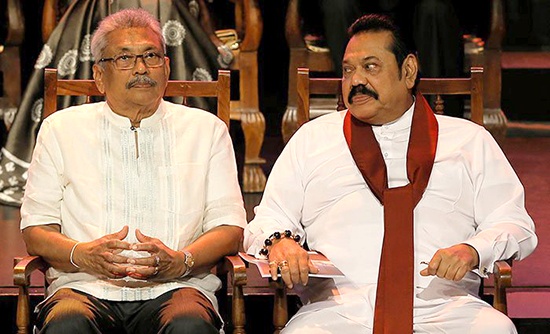
Constitutional amendment includes free hand to appoint justices and police chiefs
MARWAAN MACAN-MARKAR,
Asia regional correspondent
COLOMBO —
Sri Lanka’s political pendulum is swinging toward a strong, centralized state in the grip of an executive president with sweeping authoritarian powers, fulfilling a goal of the Rajapaksas, the South Asian nation’s most influential political clan.
The government of the ruling Rajapaksa siblings — President Gotabaya Rajapaksa and Prime Minister Mahinda Rajapaksa — has now set the stage for an imperial presidency. It did so by introducing a constitutional amendment in parliament, where the Sri Lanka Podujana Peramuna, the brothers’ political vehicle, enjoys an invincible majority.
The amendment, which would be the 20th, seeks to enshrine absolute presidential powers, complete with legal immunity for the hawkish Gotabaya, the younger of the two, during his term in office. The change would also free Gotabaya of existing parliamentary checks on executive authority and reduce the role of the prime minister to that of a rubber stamp for presidential decisions.
Other clauses would give the executive president a free hand to appoint the chief justice and judges of the Supreme Court and other high courts; he would also choose the police chief.
In addition, the amendment paves the way for a Sri Lankan who has dual nationality to be a parliamentarian. This would enable Basil Rajapaksa, another sibling and U.S. national, to become a lawmaker and a minister in the Rajapaksa administration.
Rajapaksa allies argue that an all-powerful executive echoes the political mood in the country, where the brothers have tapped into an ultranationalist, majoritarian sentiment to win two decisive electoral victories, in November’s presidential balloting and in August parliamentary elections.
The SLPP won the backing of the Sinhala-Buddhists, the country’s majority ethnic community, with a campaign for a centralized government anchored by a strongman president to succeed a right-of-center administration that was divisive, dysfunctional and prone to backstabbing to settle political scores.
“The people have given [Gotabaya] a huge mandate, and after that are we to clip his wings so that he can’t do the job?” asked Gamini Lakshman Peiris, education minister and head of the ruling SLPP. “Is it right that we do not empower the president as that is what the people wanted?”
Peiris was asking his rhetorical questions last week during a news conference.
His jabs came ahead of a Supreme Court session that will hear 39 petitions filed by opponents of the 20th amendment. Since the nation’s legislative and judicial systems do not accept any court challenges on laws passed by parliament, most of the petitioners — ranging from opposition lawmakers to political activists — are rushing to push the justices to rule that the amendment needs to be approved by a national referendum, in addition to it needing to win a two-thirds majority in the 225-member parliament.
Lawyers expect the judges to examine the amendment’s potential to undermine entrenched clauses in the constitution that protect the sovereignty of the people. “The problem with the 20th amendment,” said Sudarshana Gunawardena, a Sri Lankan human rights lawyer, “is that certain clauses give the president powers, such as when to dissolve the parliament, that will affect the people’s sovereignty. The court may also take note of the concerns expressed by a group of retired judges and the Bar Association [of Sri Lanka] about the amendment because they are knowledgeable about constitutional matters.”
History favors the Rajapaksas. Previous amendments to the 1978 constitution have not been subject to a national referendum. Parliament’s makeup also favors the brothers, whose political juggernaut has given the SLPP 145 seats. The party is confident of attracting five more votes from smaller parties to meet the two-thirds threshold.
Sri Lankans have had a taste of Rajapaksa political dominance before, during elder-brother Mahinda’s nearly 10-year presidency, which ended with his shock defeat in January 2015. That decade was marked by an authoritarian character and by the brothers presiding over an administration that saw government troops defeat the Tamil Tiger separatist, ending a nearly 30-year ethnic war. The tough-talking Gotabaya served as Mahinda’s defense secretary during the term.
The proposed amendment has generated a heated debate in the mainstream media, led by liberal and progressive-minded academics, legal experts and civil society activists. They have expressed alarm at the country regressing 40 years, to a period that gave Sri Lankans their first taste of the 1978 charter — a blueprint for an elected autocrat written by Sri Lanka’s first executive president, Junius Richard Jayewardene.
“It appears that the framework of 20A has sought inspirations from wrong constitutional models, at home and abroad, that are devoid of any democratic normative content,” wrote Jayadeva Uyangoda, a former professor of political science at the Colombo University. “The lessons that seem to have been learned are all partisan, narrow-minded, politically shortsighted, and therefore, wrong ones.”
In taking this route, the Rajapaksas are expected to face questions from India over the 13th amendment, which New Delhi shaped during the early stages of the Tamil separatist struggle. That amendment secured devolution of power and established provincial councils, enabling the Tamils, Sri Lanka’s largest minority who live in the north and eastern provinces, to elect regional leaders.
“By further entrenching powers in the executive president, 20A undermines democracy in a major way, and by omission or commission it will undermine 13A,” said Ahilan Kadirgamar, a senior sociology lecturer at Jaffna University in northern Sri Lanka. “Minorities already took a stand about their concerns of rising authoritarianism by their massive number of votes against the president at the November elections.”
The constitutional tinkering comes as the Rajapaksa administration struggles to breathe life into the anemic economy it inherited. On Monday, Moody’s Investors Service made the Rajapaksas’ job more difficult by downgrading Sri Lanka’s ratings two notches, to Caa1, from B2. The global ratings agency pointed to wide budget deficits and external pressures from ballooning foreign debts.
Moody’s already considered Sri Lanakan government debt speculative and high risk before the downgrade.
The $88 billion economy, drained of income by the pandemic, is expected to shrink by 0.5% this year after growing 2.3% in 2019, its worst showing in nearly two decades. Sri Lanka’s foreign debt is $55 billion. “Combined with slower nominal GDP growth and a weaker exchange rate, the government’s debt burden will rise to around 100% of GDP, above the Caa-rated media of 86% of GDP,” Moody’s wrote.
The Rajapaksas’ allies argue that turning around the economy requires a strong president. “Foreign investors ask us if Sri Lanka has a 10-year plan and if it can guarantee 10 years of political stability and policy consistency,” Anura Fernando, general secretary of Viyathmaga, a network of professionals shaping Gotabaya’s policies, told Nikkei Asia. “We need one strong person making executive decisions as a way to build confidence and make Sri Lanka attractive for foreign investors.”
Local businesses share a similar sentiment in the wake of the “chaos and policy inconsistency” of the previous government. “A strong president and policy stability has worked thrice before after the ‘78 constitution,” said a well-connected business insider. “Those years we saw steady growth and foreign capital flowed in. It does where there is stability and opportunity. … That is a fact.”
Gotabaya is not waiting for the amendment. Frustrated by bureaucratic red tape that has come in the way of his plans for efficiency, he launched a broadside against officials who refused to act on his orders.
“President Gotabaya Rajapaksa has directed the officials to treat all verbal orders issued for the common good of the people as circulars to be implemented,” the president’s office said in a statement. “Those who neglect this will face stern action.” (Nikkei Asia)
Latest News
PNB detect large haul of methamphetamine and heroin in local fishing trawler intercepted by Navy
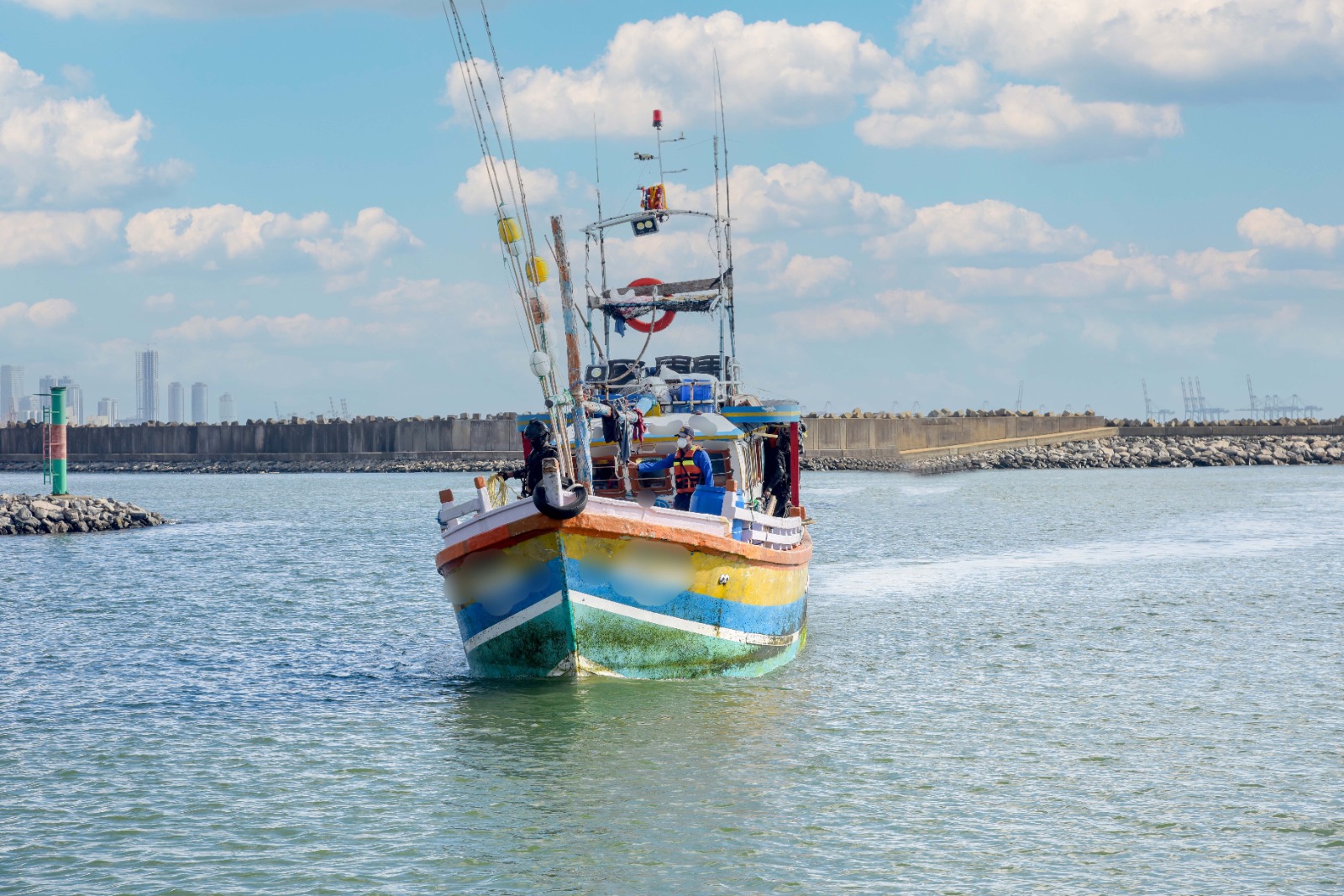
Acting on credible information, the Sri Lanka Navy launched a special operation on the high seas on 11 Apr 25, resulting in the apprehension of 06 suspects along with a local multi-day fishing trawler, believed to be involved in smuggling of narcotics.
Subsequently, the intercepted trawler was brought to the Dikkowita Harbour, where a thorough inspection was carried out with the assistance of the Police Narcotic Bureau (PNB) experts, leading to the detection of approximately 77kg and 484g of heroin and 42kg and 334g of methamphetamine (Ice).
The consignment, which had been meticulously hidden in the trawler, was handed over to the PNB for onward legal action on 12 Apr.
News
Government to initiate new projects to help rural communities to strengthen the national economy – Prime Minister
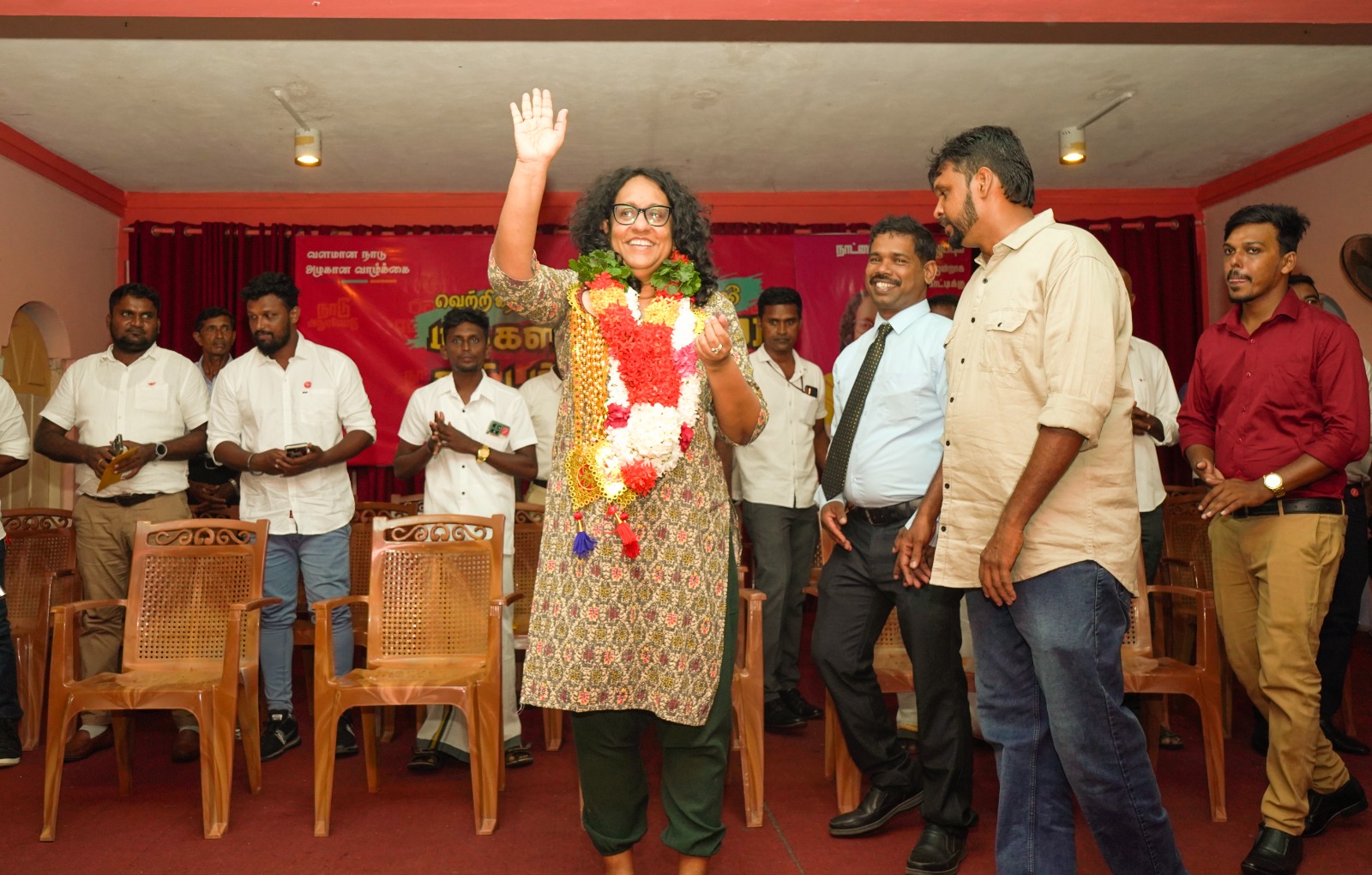
Prime Minister Dr. Harini Amarasuriya stated that the government is currently working to initiate new projects across every area of Sri Lanka and to bring the necessary investments to rural areas in order to improve the participation of the communities in strengthening the national economy.
The Prime Minister made these remarks while addressing a public gathering held on Saturday (12th) in Nanattan, Mannar.
Prime Minister further stated:
“Our country has reached a decisive point. The government of the National People’s Power (NPP) understands the expectations of the people. The general public came together despite the ethnic and religious barriers to exercise their voting right against corruption in politics that existed in this country. Consequently, Anura Kumara Dissanayake was able to become the President in 2024. A month later, we formed a Parliament that will initiate in changing the history. Today, we have a government made up of 159 members. There is now a strong group in Parliament standing against corruption and a government that represents all ethnicities, religions, and regions. For the first time in history, we have formed a government made by a single party that represents everyone. The people are the ones who made this victory possible and they are the true victors in this cause.
We are committed to protecting the trust the people have placed in us and to fulfill their expectations.
You are well aware of how weak the economy was when we came to power. Officially, we had been declared a bankrupt nation before the world. For many years, Sri Lanka had no economic growth and was in a debt-ridden economy. The tourism sector had collapsed. Due to the corruption in political authority, investors were unwilling to invest the country. Today, we have changed all that. We have managed to steer the economy towards growth leading to investments being restored while the confidence in Sri Lanka is increasing internationally.
We are working to start new projects in every area of Sri Lanka to bring the necessary investments to the rural sector, with the aim of improving the participation of rural communities in the national economy.
The first budget of the NPP government has passed. Even though the economy is not yet strong, we focused on two main priorities in the budget: one was to develop infrastructure necessary for economic growth, and the other was to provide relief to people burdened by economic hardships. That’s why we have increased and extended the period of Aswesuma benefits. Further, vouchers to buy schoolbooks was distributed at schools with less than 300 students.
Previous governments were a burden to the people. But today, we have a very small Cabinet of Ministers. The government is no longer a burden to the people. We have reduced expenses, minimized losses, and eliminated corruption.
Because the government is not a burden to the people, it was able to provide relief to the people. Through this budget, the basic salaries of the public service has been increased. They have been given the opportunity to work freely. Decisions are now made on statistical data and not based on political preferences. What we expect is an independent public service. We are in need of a people-centered government as well as a public service which should be an efficient, corruption-free and people-sensitive. We have already created the necessary environment for that.
In order to develop the rural economy, the government has allocated a large amount of funding through this year’s budget. But, to ensure that these allocations are used properly to serve the people, the local government institutions need to be cleaned up. If the leaders who represents the villages are corrupt, the funds allocated will become worthless. That is why the upcoming local government elections has become extremely significant and decisive.”
The event was attended by the Members of Parliament Jegadeeswaran and S .Thilakanadan, public representatives, and candidates of local government election representing the NPP.
[Prime Minister’s Media Division]
News
Batalanda: Why only now and what about the others, asks Mujibur
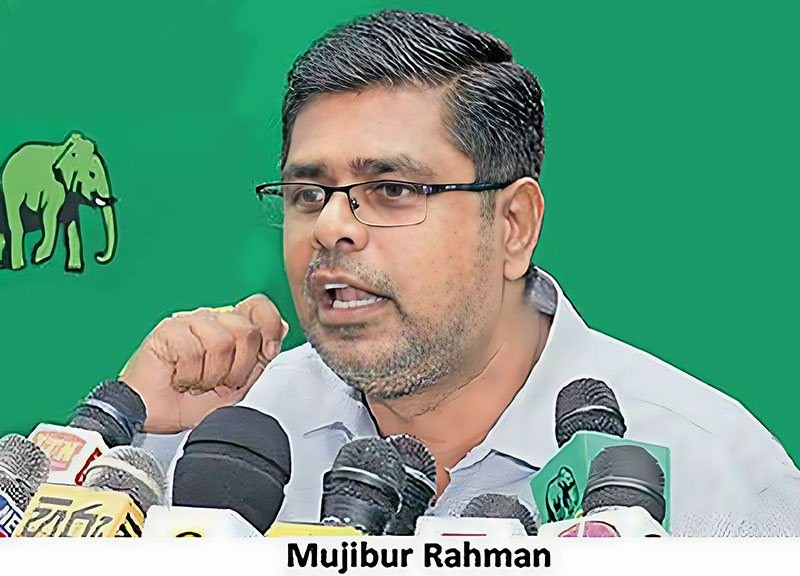
SJB Colombo District MP Mujibur Rahuman launched a fierce critique of the political hypocrisy surrounding the Batalanda Commission report during Thursday’s (10) parliamentary session.
Rahuman pointed to the violent actions of the JVP, which had devastating effects on politicians, police officers, and civilians, as detailed in the Commission’s final report.
He said that the violence had disrupted vital services and created a state of lawlessness, severely affecting the public.
The MP accused political opponents of exploiting the Batalanda issue for electoral advantage, noting that for 36 years, no proposals were made to investigate the assassination of JVP leader Rohana Wijeweera.
He criticized the JVP for forming “probationary” governments with Chandrika Kumaratunga and backing Ranil Wickremesinghe in the yahapalana effort, yet failing to address the Batalanda issue during their tenures.
Rahuman also questioned the current attacks on Wickremesinghe, highlighting that many of his critics had previously collaborated with him. He called attention to the JVP’s statements regarding Gotabaya Rajapaksa’s alleged involvement in a Matale mass grave and the distribution of pamphlets on the subject during the 2022 Galle Face protests.
The MP called for accountability, questioning why no proposals were put forward on these issues when the current government came into power. He also criticized the NPP for its leaders, who, despite being involved in suppressions during the 80s and 90s, now sought positions within the government. Rahuman accused them of hypocrisy, warning against dragging the Batalanda issue into the ongoing election.Rahuman said that the historical wrongs committed by JVP political leaders cannot be erased, regardless of attempts to downplay them.
-

 Business7 days ago
Business7 days agoColombo Coffee wins coveted management awards
-

 News2 days ago
News2 days agoSuspect injured in police shooting hospitalised
-

 Features3 days ago
Features3 days agoRobbers and Wreckers
-

 Features5 days ago
Features5 days agoSri Lanka’s Foreign Policy amid Geopolitical Transformations: 1990-2024 – Part III
-

 Midweek Review5 days ago
Midweek Review5 days agoInequality is killing the Middle Class
-

 Features7 days ago
Features7 days agoSri Lanka’s Foreign Policy amid Geopolitical Transformations: 1990-2024 – Part I
-

 Business2 days ago
Business2 days agoSanjiv Hulugalle appointed CEO and General Manager of Cinnamon Life at City of Dreams Sri Lanka
-
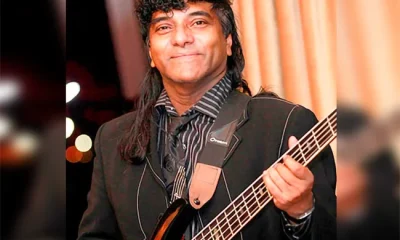
 Features6 days ago
Features6 days agoA brighter future …












